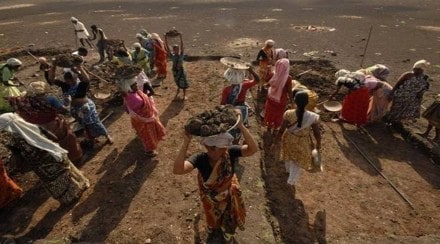The Parliamentary Standing Committee on Rural Development & Panchayati Raj has come down heavily on the government for linking wage payment under the Mahatma Gandhi National Rural Employment Guarantee Scheme (MG-NREGS) to the beneficiary’s caste.
“A startling fact that came to the fore during the examination of demands for grants 2022-23 pertaining to the mechanism of payment of wages being employed under MG-NREGA was the audacious practice of wages being paid to the beneficiaries on the basis of caste, i.e. in the order of priority starting from SC/ST to remaining others,” the committee, headed by Shiv Sena MP Prataprao Jadhav, said in a recent report.
Wage payment on the basis of caste started earlier this fiscal. Earlier, there were no provision for any category-wise prioritisation of wage payment under MG-NREGS. All workers working at a site would get the payment at the same time.
“The Committee finding themselves at a total ‘loss of words’ and could not fathom the rationale behind such idea. The scheme of MGNREGA draws its origin from a statutory source, i.e. MGNREG Act, 2005. Such absurdity is nowhere mentioned in the Act and digressing from the basic tenets of treating all the MGNREGA beneficiaries at par call for sternest possible criticism,” the parliamentary panel said.
It said the practice, unless revoked, will give rise to resentment and create rift among the beneficiaries of MGNREGA.
The committee also expressed its anguish to note that the scheme is getting riddled with malpractices ranging from fake job cards, irregularities of funds, unfair practices in usage of machines to name a few.
“Genuine labourers not getting their dues while money keeps changing hands due to collusion of unscrupulous elements surrounding the implementation of scheme at ground level is a bitter truth of the time.
Such unfair activities need to be strongly handled with to prevent the scheme going completely haywire in the hands of a few,” the committee said.
It suggested that the ministry of rural development should come up with some concrete measures to ensure a hawkish mode of surveillance of the scheme, to weed out the unfair practices associated with the scheme and not pass the buck to the states.
